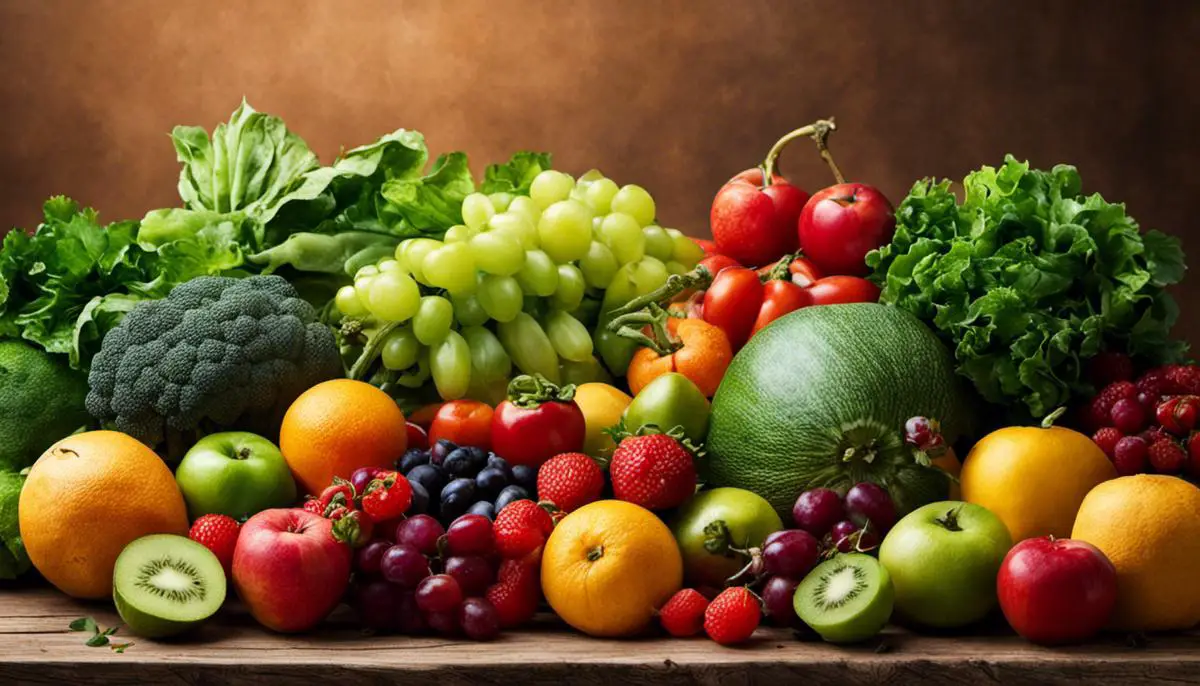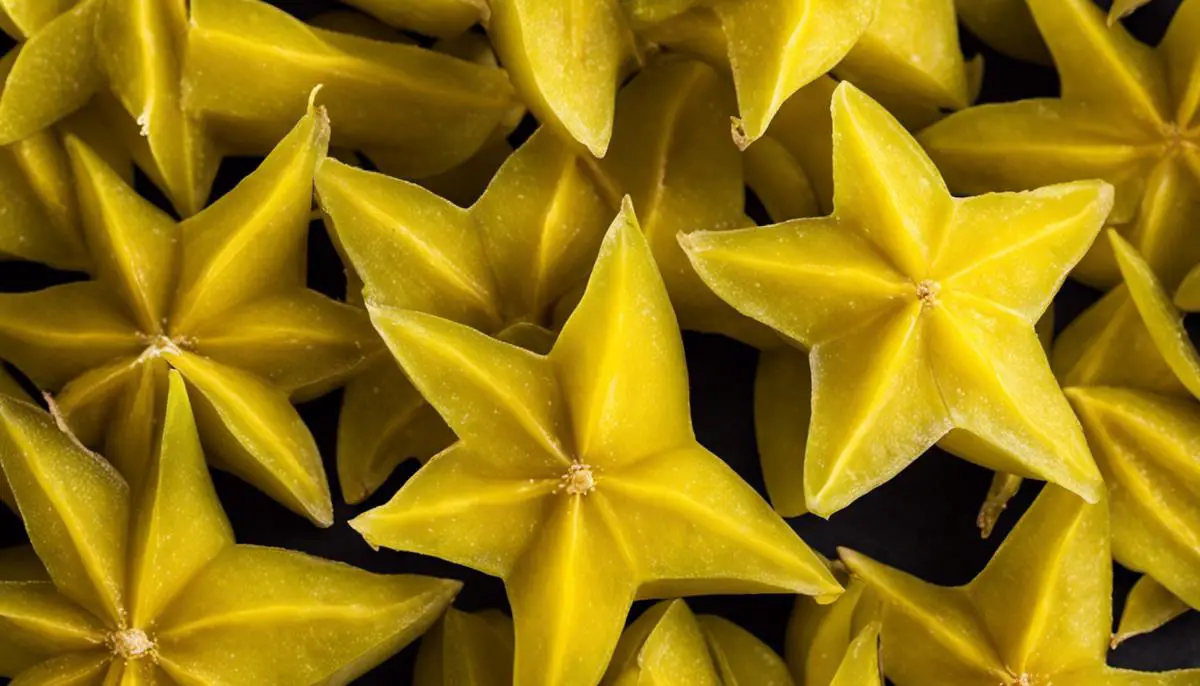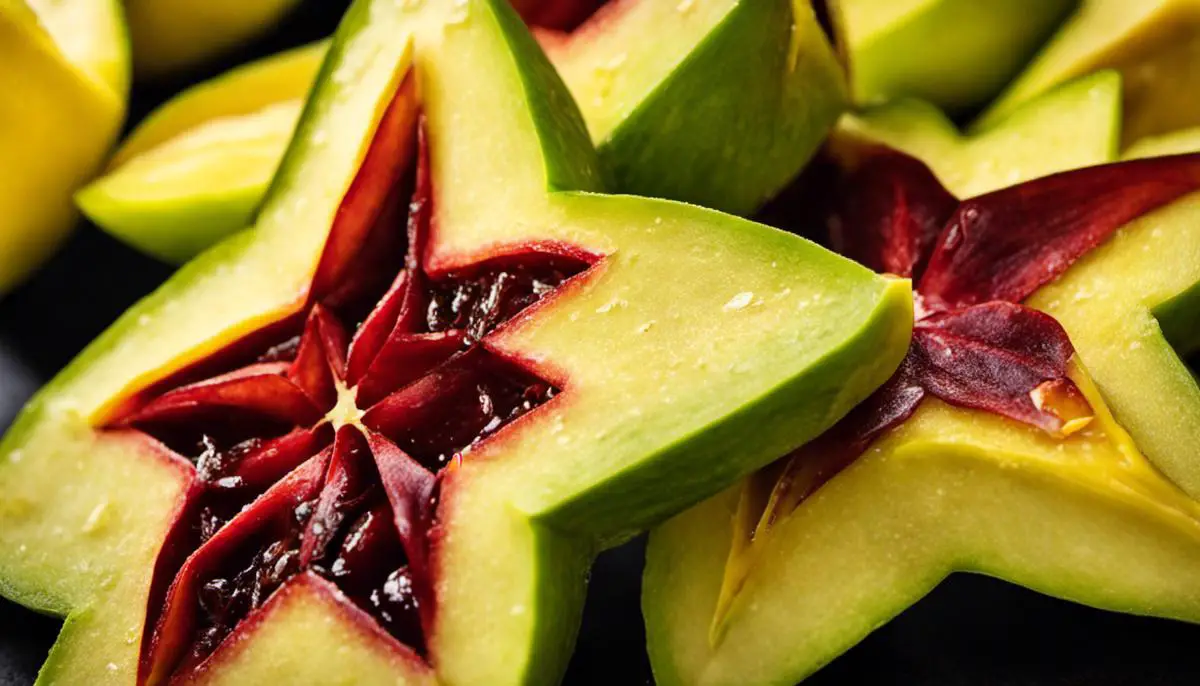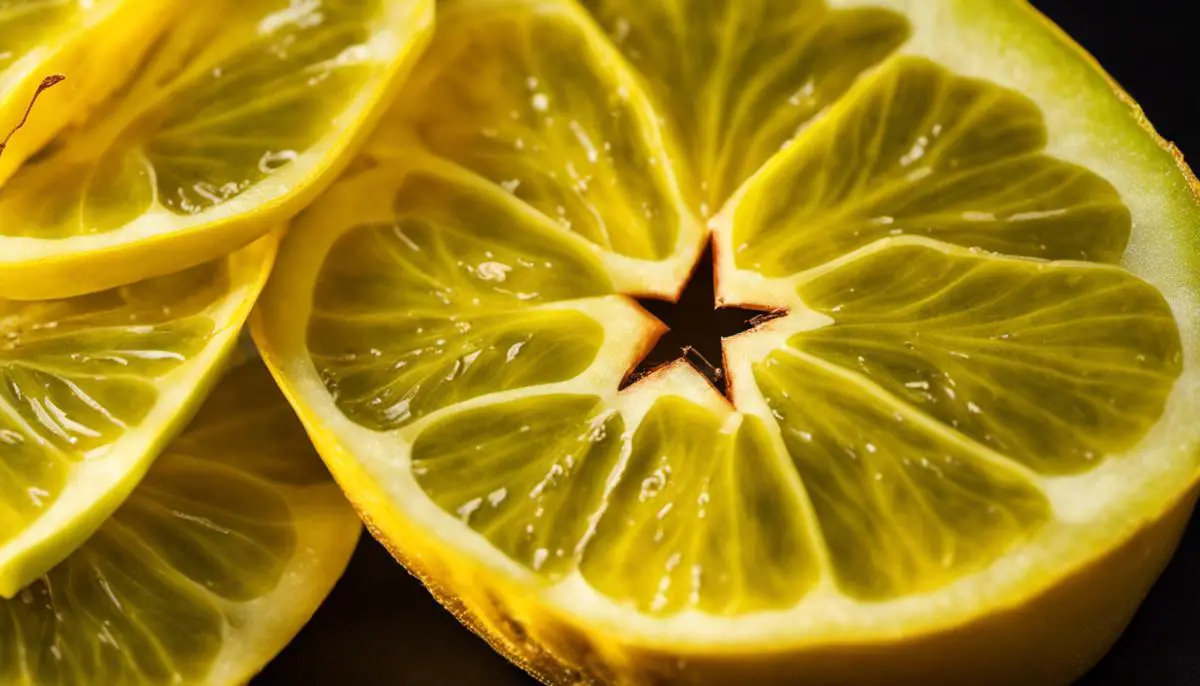Popularly known as Star Fruit, Carambola is a tropical fruit recognized for its distinct shape and sweet, tangy flavor. Its origination from Southeast Asia has not impeded its global appreciation and widespread cultivation. As much as the Carambola is famous for its unique celestial shape and taste, it is also well-known for its nutrient-rich profile, encompassing vitamins, minerals, and antioxidants. While the general nutritional benefits of consuming Carambola are quite established, the relationship between this distinct fruit and liver health is less thoroughly examined. This discussion peels back the layers on this topic, exploring the intricacies of liver functionality, the signs that could indicate its distress, and the significant factors contributing to liver health conditions. An in-depth exploration of the scientific research relating to Carambola and liver health follows, bringing to light whether the fruit’s natural components could be a lifeline or a potential hazard to our body’s largest internal organ.
Understanding Carambola (Star Fruit)
Understanding Carambola or Star Fruit
Carambola, also known as star fruit, is a unique tropical fruit that has been gaining global popularity due to its distinct flavor and impressive nutritional profile. Originating in Southeast Asia, the fruit is cultivated extensively in tropical regions like Sri Lanka, Thailand, India, Malaysia, the Philippines, and throughout South America.
Nutritional Value of Carambola
Packed with essential vitamins and minerals, star fruit is a potent source of antioxidants, providing nearly 76% of the recommended daily intake of vitamin C in just a single serving. It’s also a good source of potassium, which aids in maintaining optimal blood pressure levels, and has a considerable amount of dietary fiber. Additionally, it contains other health-supporting compounds such as quercetin, epicatechin, and gallic acid that help protect your cells from damage.
Common Uses of Carambola
The star fruit’s refreshing, slightly sour taste makes it a popular addition to a variety of dishes. It is commonly used in salads, juices, desserts, and as a flavoring in cooked dishes. The fruit is often consumed fresh, but it can also be candied, canned, or even made into wine.
Carambola and Liver Health
While many may enjoy the unique taste and nutritional benefits of carambola, individuals with impaired kidney or liver function should approach this fruit with caution. The fruit contains a neurotoxin, caramboxin, that can’t be effectively processed by those with these conditions.
In people with healthy kidneys and liver, this neurotoxin is metabolized and excreted without issue. However, in individuals with compromised renal or liver function, the body’s inability to process caramboxin can lead to carambola fruit intoxication, the symptoms of which can include confusion, seizures, and even coma.
A study revealed that patients with chronic liver disease showed higher sensitivity to star fruit toxicity than the general population, suggesting that the fruit’s neurotoxins, particularly caramboxin, can dramatically impact liver health in predisposed individuals.
Precautionary Measures
Given the potential risks, it is important for anyone with compromised liver health to consult with a healthcare professional before consuming star fruit. Additionally, ensuring adequate hydration may help to expedite the elimination of caramboxin. Regular monitoring of liver function is also advised for those who continue to consume the fruit.
Wrap-up
Star fruit, also known as carambola, is a nutrient-loaded delight that can offer many health benefits. However, caution is advised for those suffering from kidney or liver disorders. The notion of star fruit-triggered intoxication underlines the need to balance our diet, strategically introducing measure in light of certain chronic health conditions. Understanding the effects particular foods can have on our health is key to maintaining a lifestyle of safety and well-being.

Liver health Importance
The Role of the Liver in the Body
Positioned as one of the most vital organs within our body, the liver’s responsibilities are manifold in maintaining our overall health. It assumes the significant role of detoxifying our system, marking it as the primary defense against toxins or undesirable substances. However, its role doesn’t end there. The liver is the body’s workhorse, persistently performing other major functions like protein and enzymes synthesis, producing bile for fat breakdown and absorption, stocking up vitamins and minerals and meticulously coordinating blood clotting mechanisms, among other tasks.
Symptoms and Causes of Liver Disease
Liver disease can disrupt these essential functions and lead to severe health consequences. Key symptoms of liver disease include jaundice (a yellowing of the skin and eyes), abdominal pain and swelling, swollen legs and ankles, chronic fatigue, nausea or vomiting, loss of appetite, and tendency to bruise easily. These symptoms can result from various causes, including viral infections (such as Hepatitis A, B, and C), autoimmune disorders, genetic diseases, alcohol abuse, fat accumulating in the liver (nonalcoholic fatty liver disease), and prolonged exposure to harmful toxins.Carambola’s Impact on Liver Health
Recently, there’s been a growing interest in carambola, also known as star fruit, and its potential impact on liver health. Carambola fruit contains a high concentration of antioxidants, which are believed to protect the liver from oxidative stress – an imbalance between free radicals and antioxidants in your body. Studies suggest that the fruit’s antioxidant properties have hepatoprotective effects, which could potentially help in preventing liver disease. However, some research also shows that carambola can be harmful to individuals with pre-existing kidney issues or those with a damaged liver, as it contains considerable amounts of oxalic acid and caramboxin. These substances can accumulate in the body and become toxic if the kidneys or liver aren’t functioning correctly, leading to neurological problems, seizures, or even death in some extreme cases. While the fruit has both potential health benefits and risks, it’s important to note that moderation is key, and anyone with liver or kidney disorders should consult healthcare professionals before consuming carambola.Understanding the Impact of Carambola on Liver Health
It’s important to note that carambola, or star fruit, is generally safe for consumption by those with healthy liver and kidneys. These organs effectively eliminate any potentially harmful substances found in the fruit. Despite some concerns, carambola is packed with beneficial nutrients such as dietary fiber, vitamin C, along with several essential minerals which can boost overall health. However, there is a flip side to this as well. For individuals with existing liver or kidney conditions, the fruit could potentially pose certain risks that should not be overlooked. Thus, proper guidance is needed when it comes to carambola consumption among this group. In concluding, a deep understanding of carambola’s effect on liver health is yet to be fully understood, and calls for further research.
Scientific Research on Carambola and Liver Health
Diving Deeper into the Composition of the Carambola Fruit
Carambola, affectionately known as the star fruit due to its unique star-like shape when sliced, is a tropical delight native to Southeast Asia. The fruit is known to offer a range of benefits, thanks to its exotic taste, nutrient density, and its unique health nuances, particularly when it comes to liver function. The fruit is infused with a mix of bioactive compounds, vitamins, and minerals. Compounds like antioxidants, including vitamin C and epicatechin, and anti-inflammatory agents such as quercetin are abundantly found in carambola and could potentially play a role in its health benefits and concerns related to liver health.
Carambola’s Impact on Liver Health
The antioxidant properties of carambola play a crucial role in maintaining liver health. Antioxidants combat oxidative stress, a key factor that contributes to liver disease progression. By neutralizing harmful free radicals in the body, antioxidants could potentially reduce liver inflammation and prevent further damage.
The presence of the anti-inflammatory compound, quercetin, in carambola also shows potential liver health benefits. Quercetin has been scientifically proven to improve liver health by reducing inflammation and oxidative stress. Moreover, it has protective effects against hepatotoxicity, a condition where the liver suffers damage due to exposure to harmful chemicals or drugs.
Possible Detrimental Effects of Carambola on the Liver
Despite the fruit’s beneficial properties, it’s vital to note that carambola contains oxalic acid, which can be harmful in large quantities, particularly for individuals with kidney disease or other pre-existing health conditions. Oxalic acid forms crystals in the body, which can lead to kidney stones, impairing the kidneys’ ability to filter out toxins effectively. Since the liver and kidneys work closely to detoxify the body, impaired kidney function could indirectly impact liver health.
Furthermore, carambola also contains caramboxin, a neurotoxin that can’t be effectively processed by those with impaired kidney function. Elevated levels of caramboxin in the bloodstream due to excessive carambola consumption can lead to neurological symptoms and may potentially impact liver health.
The Impact of Carambola Consumption on Liver Health
The effects of carambola, or star fruit, on liver health can be both beneficial and potentially risky, as indicated by scientific research. The key to safe consumption lies in understanding one’s personal health background, specifically in regards to kidney and liver function, and maintaining a balanced diet. For those in good health, moderate carambola ingestion may contribute positively to a nutritious diet. However, for individuals facing health conditions such as kidney disease or those with potential risks, it might be necessary to limit or completely exclude carambola due to the presence of oxalic acid and caramboxin in the fruit.
Despite the available information, more research is necessary to explore the full extent of carambola’s effects on liver health. As is the case with any diet-related decision, it’s recommended to consult a healthcare professional or a certified dietitian for personalized advice.

Potential Risks and Benefits of Carambola for Liver health
Understanding Carambola’s Relationship with Liver Health
Typically, carambola, also known as star fruit, holds fame for its delightful flavor and substantial nutritional content, as it is loaded with vital vitamins, antioxidants, and dietary fiber. However, consumed without moderation, this tropical fruit might impose health risks particularly to those with liver and kidney issues mainly due to its content of oxalates and a neurotoxin named caramboxin.
Antioxidants and Liver Protection
Frequent consumption of carambola can offer numerous health benefits, primarily due to the presence of beneficial antioxidants such as quercetin, gallic acid, and epicatechin. These powerful compounds play a significant role in eradicating harmful free radicals from the body, hence reducing oxidative stress and inflammation – two prominent factors often linked with chronic liver diseases.
Moreover, star fruits are rich in Vitamin A and C, known for their robust immune-enhancing and anti-inflammatory properties that may further enhance liver health.
The Risk of Oxalates and Caramboxin
Despite the potential advantages, carambola consumption also presents risks, most notably due to its high content of oxalates and the presence of caramboxin. Oxalates are organic acids found in several vegetables and fruits, with elevated concentrations in star fruits. For healthy individuals, consuming dietary oxalates poses little to no risk. However, in people with pre-existing kidney disorders, excessive intake can lead to oxalate accumulation, potentially forming kidney stones or leading to renal failure. This is a significant concern, as a properly functioning kidney is necessary to filter and remove caramboxin from the body.
Caramboxin, a neurotoxin found in carambola, similarly poses little to no risk in healthy individuals due to the kidney’s ability to filter and remove from the body. But in those with kidney and liver disorders, the neurotoxin may accumulate and cause various neurological symptoms, or in extreme cases, seizures or death.
Balance is Key
Therefore, the key is to maintain a balance. For healthy individuals without kidney or liver concerns, moderate consumption of carambola can be a part of a balanced, healthy diet. However, for those with kidney troubles or liver diseases, it may be critical to limit or completely avoid carambola consumption due to potential health risks, unless specifically advised otherwise by a medical professional.
Importance of Expert Medical Advice in Dietary Decisions
When it comes to making dietary choices, it’s crucial to prioritize expert medical advice, especially for individuals with existing health conditions. The effects of food consumption can significantly change depending on one’s health status. Therefore, seeking advice from healthcare professionals or dietitians can offer personalized recommendations tailored to individual health needs and condition. It should be duly noted that while fruits such as carambola can offer substantial health benefits, they cannot substitute medical treatments for liver or kidney diseases.

Conclusion: Is Carambola Good for Liver Health?
Exploring the Impact of Carambola or Star Fruit on Liver Health
Carambola, better known as star fruit, originates from Southeast Asia and has made its mark globally due to its unique taste, high nutritional value, and potential health advantages.
Nevertheless, it’s important to highlight that the impact of consuming carambola on liver health can differ greatly. It majorly depends on crucial factors like the individual’s overall health status and pre-existing medical conditions.
The Potential Benefits of Carambola for Liver Health
Carambola is rich in antioxidants like vitamin C, polyphenols, and quercetin, providing numerous potential health benefits, including protection against liver damage. These antioxidants can reduce oxidative stress and inflammation, key factors that can lead to chronic liver diseases such as non-alcoholic fatty liver disease and liver cirrhosis.
A study published in the Pharmacognosy Magazine indicates that carambola’s polyphenols, including epicatechin and proanthocyanidins, have protective effects on the liver.
Furthermore, carambola is a good source of fibers that aid in maintaining a healthy digestive system and regular bowel movements, indirectly benefiting liver health. A balanced diet rich in fiber can reduce the risk of developing gallstones and other conditions that can affect the liver’s function.
The Potential Risks of Carambola for Liver Health
Despite these benefits, carambola fruit can be harmful, even lethal, to those with kidney diseases or those who have compromised kidney function. The fruit is rich in oxalates and caramboxin, substances that healthy kidneys typically filter out.
However, in individuals with impaired kidney function, these substances can accumulate, disrupting neuronal activity and potentially leading to neurological disorders, convulsions, or liver damage.
Moreover, several reports have documented cases of acute hepatitis following the consumption of carambola juice. The term “carambola-induced hepatotoxicity” has been introduced to describe a unique syndrome of acute hepatitis derived from consuming the star fruit.
Special Considerations for Individuals with Pre-existing Conditions
While most people can enjoy carambola without ill effect, it’s crucial to exercise caution if you have been diagnosed with, or are at risk for, kidney disease. Even small quantities can be problematic for these individuals. Additionally, people who are on medication for liver diseases should consider interacting with healthcare professionals before including star fruit in their diet as carambola can interact with certain medications, altering their effectiveness.
In conclusion
More research is needed to establish definitive evidence of carambola’s impact on liver health. It is essential to monitor consumption, given the potential risks associated with its intake, particularly for at-risk populations. This information emphasizes the importance of understanding the implications of dietary choices on liver health.

Following the thorough examination of Carambola’s interaction with liver health, it’s apparent that its effects can be two-pronged, providing benefits under certain conditions and presenting risks in others. Rich in antioxidants and essential nutrients, the star fruit can indeed boost liver health, acting as a preventer of liver disease. However, the presence of neurotoxins in the fruit can be harmful to individuals with compromised kidney or liver function, leading to potential risk of toxicity. Therefore, judicious and informed consumption of Carambola is crucial, appropriately meshing its benefits with the consumer’s underlying health conditions. Ultimately, understanding this balance underscores the age-old saying that the difference between a medicine and a poison is in the dose. Therefore, with Carambola, our liver health could indeed be seeing stars, but only when we look beyond the surface and harness the fruit’s potential wisely, consciously, and responsibly.
